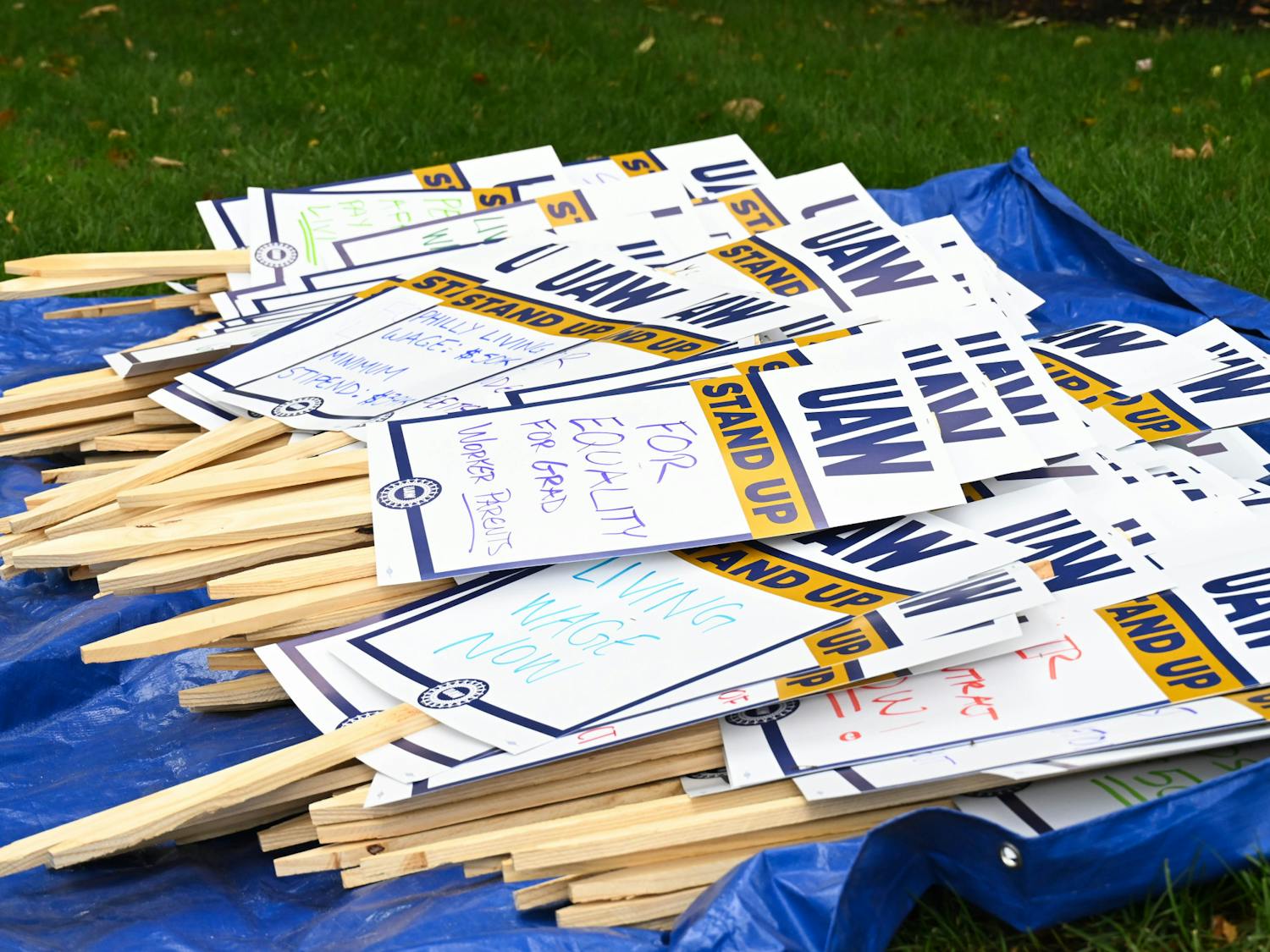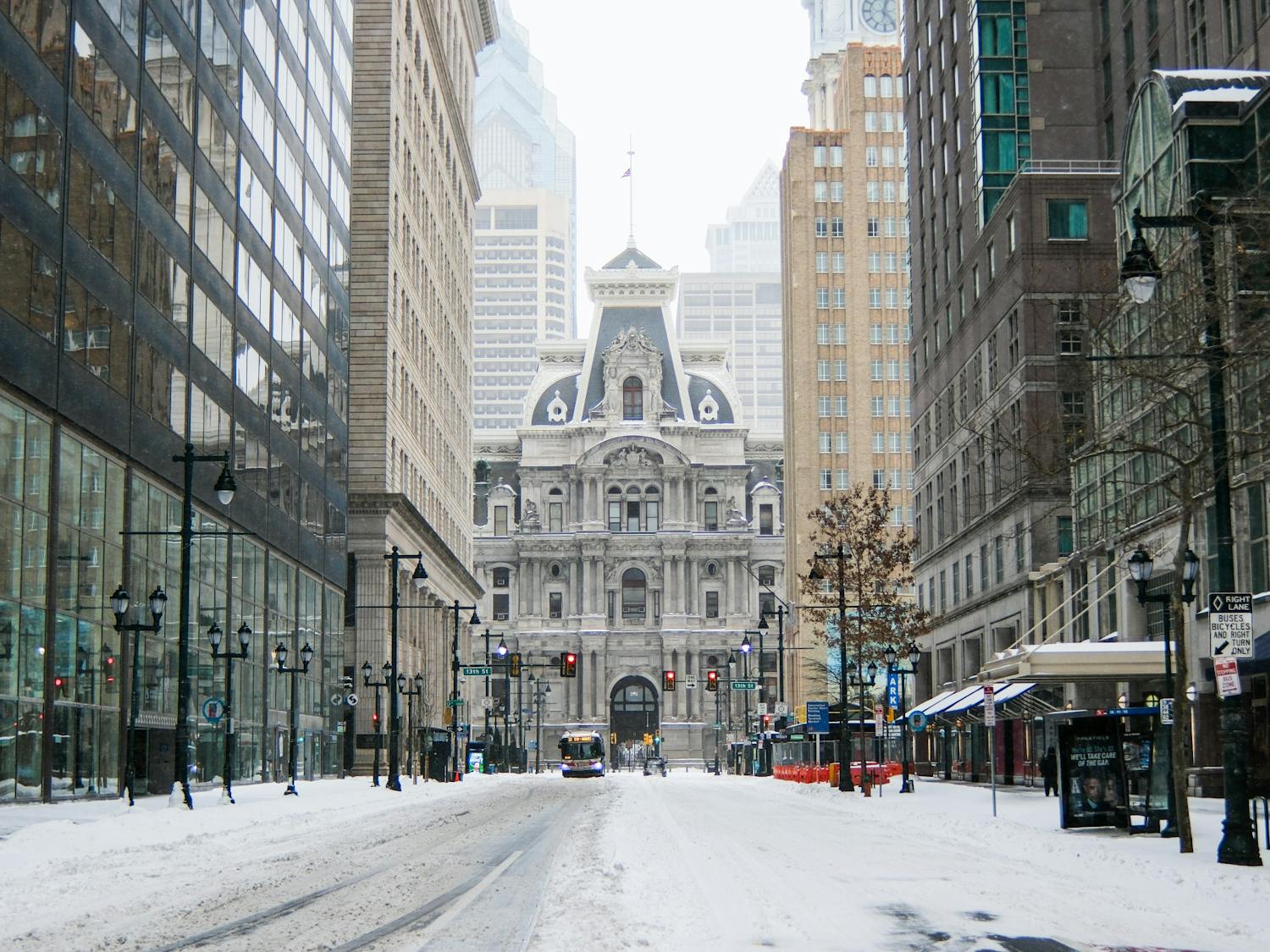Once, the Psi Upsilon fraternity was simply "the Castle."
As recently as eight years ago, the two names were synonymous and interchangeable. Psi U boasted the most diverse brotherhood on campus and its members lived in the crown jewel of the University's residences — the 100-year-old, three-story building at 36th Street and Locust Walk.
Psi U colonized its Penn chapter in 1891, and had lived in the Castle since the fraternity built it with its own funds in 1898. Being in the Castle made Psi U the envy of the other Locust Walk fraternities.
"It was a very special place to belong to," said alumnus Phil Timon, who was Psi U's alumni adviser from 1991 until earlier this year. "We had all kinds of different countries [represented]. We had the very poor to the very rich. It was the best that the college experience has to offer."
But on the night of Saturday, January 20, 1990, the brothers of Psi Upsilon changed the Penn chapter forever.
About a dozen brothers kidnapped a rival fraternity member, subjecting him to various forms of physical and mental abuse. Penn kicked Psi U off campus less than five months later.
Now, a new generation of 21 Psi U brothers say they are putting the past behind them and trying to rebuild the fraternity from the ground up.
In the fall, the fraternity will reclaim the Castle from Penn's Community Service Living-Learning Program, which has inhabited the building since 1991. The University bought it from Psi U in the 1930s but is contractually obligated to give the chapter the chance to live there.
The brothers will try to restore the reputation Psi U once had at Penn.
"We had a pretty distinguished history which melted down in one incident," Timon said.
The incident
The plan was simple enough; the reasons behind it were not.
There was a history of bad blood between Psi U and Delta Psi, also known as St. Anthony Hall, rooted mainly in racial issues, according to Timon, a 1986 Wharton graduate.
About 15 years earlier, Psi U had become one of the first fraternities to accept blacks. In 1990 its brothers were of various religious, ethnic and socioeconomic backgrounds.
At the same time, Timon said, St. A was home to "a couple of rednecks."
Brothers in St. A at the time often made racially offensive remarks to Psi U's black brothers, who also believed that St. A brothers wouldn't let them in their house because of their race, Timon said. "It got really ugly," he said.
Evidently in response to such actions, several Psi U brothers decided to retaliate. And they went all out in their efforts.
Brothers bought ski masks to hide their identities. They held a trial run at the Castle to make sure everything would go according to plan. They arranged for a decoy and planted lookouts to prevent any interruptions.
The plan: a team of eight to 10 Psi U brothers and pledges would go to 231 S. 41st Street, the off-campus residence of several St. A brothers.
They would call ahead and tell their intended victim, University student and St. A brother Christopher Sheffield — who they felt was particularly responsible for some of the discrimination — that there was a flower delivery for him at the door.
Brothers were surrounding the house to prevent a possible escape. The getaway car was sitting outside the house.
A pledge — the only one not wearing a ski mask — would pose as the deliveryman. When Sheffield emerged from the house, the Psi U brothers would pounce.
But well-laid plans are usually the first to go wrong. And these went bad as soon as they began — the brothers abducted the wrong person.
Instead of Sheffield, his roommate, then-College junior Billy O'Flanagan, answered the call telling him about the flowers. Telling the caller that Sheffield wasn't home, O'Flanagan agreed to sign for the delivery himself.
Barefoot and wearing just sweatpants and a T-shirt, O'Flanagan emerged from the house at around 10 p.m. and saw the "delivery man." When he started to sign for the delivery, the pledge grabbed his wrist, while 10 other brothers helped subdue him, punching him in the face and dragging him to the ground.
O'Flanagan's four-hour ordeal had begun.
Once he was in the car, the Psi U brothers blindfolded him and wrapped his arms and legs with duct tape.
During the car ride, the racially mixed group of kidnappers played a tape of a Malcolm X speech and drove to a nearby playground.
At this point, O'Flanagan apparently realized they thought he was Sheffield. "I'm not him," O'Flanagan told his captors. "I'm Billy O'Flanagan."
"Oh, shit," replied one of the Psi U members.
O'Flanagan then offered to forget about the whole thing if they returned him to his home, but his offer was ignored. The brothers handcuffed him to a pole and taunted him. It was a cold and rainy January night, making the underdressed O'Flanagan even more uncomfortable.
At some point in the night, a Psi U brother took out a knife and ran it down O'Flanagan's arm. He was,"in extreme physical and emotional distress and believed himself to be in imminent danger of death," according to the official University report — the source of most of this article's information about the kidnapping itself.
At least an hour later, the brothers staged what they called a "trial." They accused O'Flanagan of being a "neo-Nazi racist fuck," among other things. They also accused him of urinating on their house. O'Flanagan continued to explain that he was not the person they thought he was.
"Do you think I'm stupid?" yelled one of the abductors. "I know you're not Sheffield. I want to beat the shit out of you, but [other brothers] want to take you back."
Their work essentially finished, the brothers uncuffed O'Flanagan and brought him back to the car. They drove to 34th and Chestnut streets, and dropped him off at about 2 a.m.
"We encourage you to retaliate because we'll come back stronger. Now it's war!" they yelled as they left.
The aftermath
Within the week, the Philadelphia Police Department and the Judicial Inquiry Office — the predecessor to the Office of Student Conduct — were investigating the matter.
Less than a month later, then-College junior Carlton Jackson and then-College sophomore Aaron Castellano were arrested in connection with the kidnapping.
The felony charges were very serious; the two faced up to 64 years in prison.
In July, the Philadelphia District Attorney's office charged eight other Psi U brothers with conspiracy, simple assault and false imprisonment — all misdemeanors.
To avoid prison time, all 10 students agreed to join a special probationary program for first-time offenders.
Internally, Psi U was overwhelmed by the incident. Its national chapter came to campus to investigate. All pledging ceased and the fraternity stopped having social events. Its president and other officers resigned, and public sentiment was very much against the fraternity.
Timon said legal reasons prevented Psi U from defending itself and because of that, a lot of "misinformation" was spread.
"We did a terrible job in that we did not go on the aggressive to clear our names," Timon said. "But these kids had been arrested. So we couldn't talk, because anything we said could've been used against these guys. As a result, you only heard one side and we were nuked."
By the end of the semester, University officials had decided to hold Psi U collectively responsible for the incident.
In May 1990, the JIO released a 44-point findings of fact and charged 21 Psi U members for the kidnapping. While none of the brothers were expelled, the 99-year-old chapter was evicted from the Castle and kicked off campus. They were barred from applying for readmittance until the spring of 1993 -- when all those currently in the fraternity had graduated.
"Whenever human dignity is trampled, we are all diminished," wrote then-Vice Provost for University Life Kim Morrisson in an open letter to the University community on Penn's decision.
Controversy
The decision was controversial on several levels. Members of the United Minorities Council protested what they saw as the elimination of the only racially diverse fraternity on campus. Psi U brothers decried the extreme punishment which held brothers who were out of the country at the time responsible for the kidnapping.
Many associated with the fraternity believe the impetus for Psi U's expulsion was the threat of a civil suit against the University by O'Flanagan, as well as then-University President Sheldon Hackney's quest to diversify residences on Locust Walk beyond fraternities.
Hackney referred questions to his then-administrative assistant Nick Constan, who disputes those allegations.
"I think it's a self-serving kind of thing," said Constan, now a Legal Studies professor. "When someone gets caught doing something unacceptable, they come up with reasons they were victimized."
Considering the seriousness of the allegations against the fraternity, Constan said he "didn't think there was an alternative" to outright expulsion.
The tie binding Psi U and the Castle had been severed.








